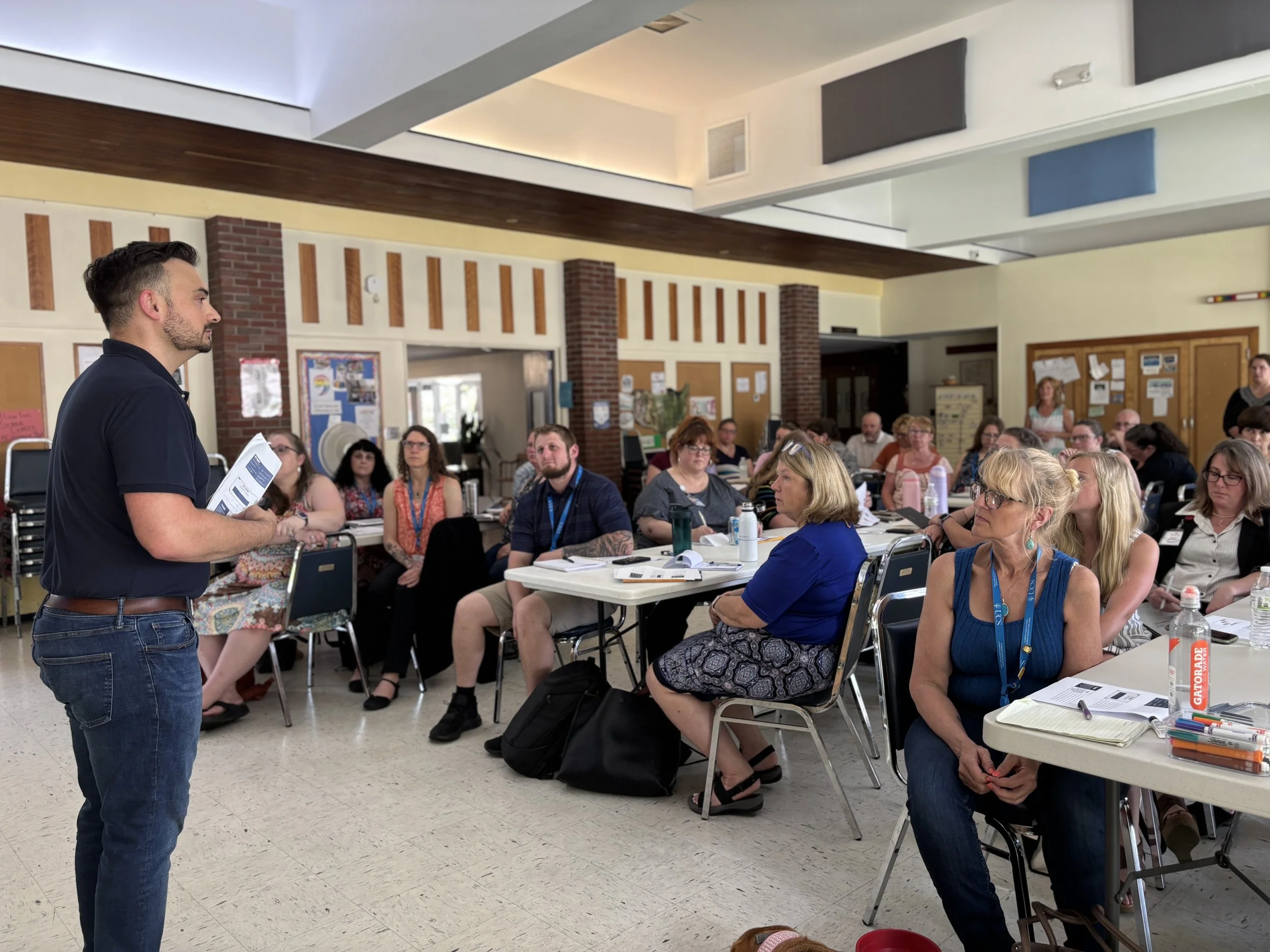The Future (Should/Could) Be for Coaches and Trainers, Not Just Motivational Speakers
As I continue to grow my firm and refine the passion behind my work, I keep coming back to one core belief: I don’t want to be just a “motivational” speaker.
Sure, the large crowds, recognition, and healthy paycheck are appealing. And don’t get me wrong, motivational speaking has its place. But in today’s business and personal development world, it’s been put on too high a pedestal. The rise of social influencers, podcasters, and self-proclaimed thought leaders has only amplified the appeal of this shiny object. Too often, opinions and “individuality” now outweigh grounded theory and true subject-matter expertise.
What we need more of is not just inspiration, it’s the grounded transfer of knowledge. We need the kind of insight that comes from deep training, personalized coaching, and skillful facilitation.
A motivational speaker often works to spark emotions and feelings. A great trainer or coach, however, focuses on belief systems, mindsets, and the long, steady work of personal and professional development.
The best motivational speakers (and I’ll refrain from naming names) do have grounded theory and practical experience to share. But far too often, the stage is filled with light-on-substance presentations that avoid the science, the discipline, and the uncomfortable truths. Instead, they lean on the dopamine hit of soundbite moments: short, buzzworthy lines designed to pop in a podcast clip, light up a caption reel, or trend as a shareable quote, rather than digging into the deeper work.
Yes, there’s value in “rallying the troops” and giving people a burst of optimism. But we’ve overcompensated motivational speakers with our attention, our budgets, and our bookings.
I envision a future where organizations get equally excited to hire a skilled facilitator - someone who can guide a room toward shared vision, clear strategies, actionable initiatives, and measurable KPIs.
Where leaders line up to work with an executive coach who can transform the way they lead, manage, and engage with their teams.
Where instructional design is valued, and leaders actively ask: Did the learner actually learn? Did we advance the group’s thinking?
This is the kind of investment that leads to lasting change.
Living on both sides of the equation - as both a consultant/trainer and as a client in my chamber work - I’ve seen a frustrating disparity. Trainers and facilitators often charge too little for the immense value they deliver, while keynote speakers sometimes charge astronomical fees for a fraction of the work.
I’ve seen highly skilled trainers charge $4,500 - $6,500 for an eight-hour retreat - complete with preparation and follow-up - doing the incredibly challenging work of guiding a group toward alignment. Meanwhile, I’ve watched keynote speakers charge $10,000 - $25,000 for a single 30-minute talk.
Celebrity and notoriety have a strange power. Yes, a well-known author or personality can pack a room and energize an audience. But a skilled trainer or consultant can fundamentally shift an organization’s trajectory in a single day. One is paid four times more than the other - often for far less impact.
I’ve even seen leadership teams hesitate to approve $6,500 for a day-long retreat… only to book a high-profile speaker for their annual conference without blinking.
I’ve been called engaging, inspiring (maybe even motivational) when I do workshops or breakout sessions at conferences, but I tend to shy away from the title of motivational speaker. If you want to pay me more, I won’t object, but my goal isn’t just to give people a moment of excitement.
I want people to walk away from my talks and training with: greater clarity, tangible skills, newfound confidence, and a deeper sense of grace for themselves and others.
Yes, that can be motivating - but it’s also transformative.
In my high school biology classroom, there was a poster with a cartoon horse that read: “Success isn’t so much flashes of brilliance, but rather slowly slogging away at it.”
That’s stuck with me.
If you want to truly transform your talent, your people, and your organization, you don’t just need a 20-minute power talk - although those moments can be valuable. You need a thoughtful, comprehensive strategy, guided by a skilled trainer, facilitator, and coach who will help you do the hard, steady work that leads to real, lasting change.
